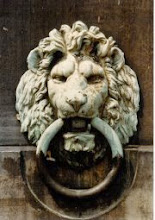Here are some excerpts from that article.
Most Americans are startled to hear that until the passage of the Harrison Act in 1914, drug use was viewed as a medical and social problem and was not against the criminal law. There was no billion-dollar black market. No violent drug trade No widespread official corruption. No widespread disrespect for drug laws. Drug users went to their doctors if they needed treatment.
There were drug problems. In fact, around the turn of the century large numbers of housewives were addicted to opium. Nerve medicine for women, containing opium, was sold across the counter at drug stores. Other addictive substances were sold as patent medicines. Gradually. the medical profession became more aware of the addictive nature of some drugs and supported the passage of the Pure Food and Drug Act of 1906, which required labeling and warnings for habit-forming substances.
That law was a civil one; it did not criminalize drug users. It is instructive. The number of addicts and users was greatly reduced by educating them, not by arresting them.
Criminalizing drugs in the United States was a remarkable change in public policy. But it wasn't the police who were lobbying for the passage of the Harrison Act, which was the cornerstone of increasingly punitive laws against drug users and sellers. The Protestant missionary societies in China, the Women's Christian Temperance Union and the Anti-Saloon League and other organized religions were the prime movers. In their view, drug use was sinful and people had to be saved from their baser instincts. In effect, they managed to get their version of sin enacted into the penal code, an old habit of power elites in America.
This view of drug users as criminals continues to haunt us and makes rational political debate impossible. It is too appealing for politicians to picture themselves as the good guys fighting evil.
....
Nobel-winning economist Milton Friedman, doing a comparative analysis with homicide rates during Prohibition, estimated that as many as 10,000 murders a year are caused by the illegality of drugs. In addition, corruption of law enforcement, the legal profession and even the armed forces related to drug money is spreading.
That last paragraph is significant because the government figures for deaths from drugs for all causes is between 16,000 and 20,000 per year. If 10,000 are drug-law-related murders, that means that only 6,000 to 10,000 deaths per year are related to the mere use of the presently illegal drugs. Compare that to the 85,000 to 100,000 people dying prematurely due to the use of alcohol, or the more than 400,000 from the use of tobacco. And yet we, as taxpayers, are allowing the government to scare us, and lie to us, and to violate our inalienable rights, and use our money to the tune of anywhere from 50 billion to 100 billion dollars a year to try and stop the 6,000 to 10,000 deaths per year caused by the mere use of certain drugs. (If drugs were re-legalized, like the re-legalization of alcohol in 1933, the murders related to the drug prohibition would stop, as they did after the alcohol prohibition.)
I'm not saying that 6,000 to 10,000 people that misuse drugs (alcohol plus heroin is the usual cause of "heroin overdose" deaths) are to be dismissed out of hand. But compared to the extremely greater amount of deaths caused by the legal drugs alcohol and nicotine, they shrink into insignificance. Besides, adults are supposed to have inalienable rights. That means that they own the property of their bodies and their minds and have a "right" to use them as they wish, even if in so using them it causes them harm or death. That's what true personal liberty and freedom is all about. Otherwise, the government would have the legitimate power to ban all activities that might cause people harm or death . . . like driving race cars, climbing mountains, skiing, swimming, or just the daily commute.
If you don't like a person's personal moral beliefs or lifestyle, you can't force that person to stop or change, unless that person has harmed you or your property, or is a direct and immediate threat to you or your property. Merely snorting cocaine or smoking marijuana, or injecting heroin does not rise to the level of harming or endangering others. And if you, as a private individual can't force someone to change their lifestyle, then the government can't either. The government derives its proper power from the people. If the people don't have it, the government can't have it.
But that is just so much boring political history, brought to us by the Founding Fathers of this nation, who would be shocked insensible at the amount of government interference that now exists in the lives of otherwise honest, self-supporting citizens . . . and is tolerated by them.
Wake up America. The government has become a tyranny.
My question to you, America, is why are you allowing this b.s. to continue. And why do you believe that religious beliefs should be the basis of our secular laws and secular government. I, and millions like me, don't worship at that church.

No comments:
Post a Comment